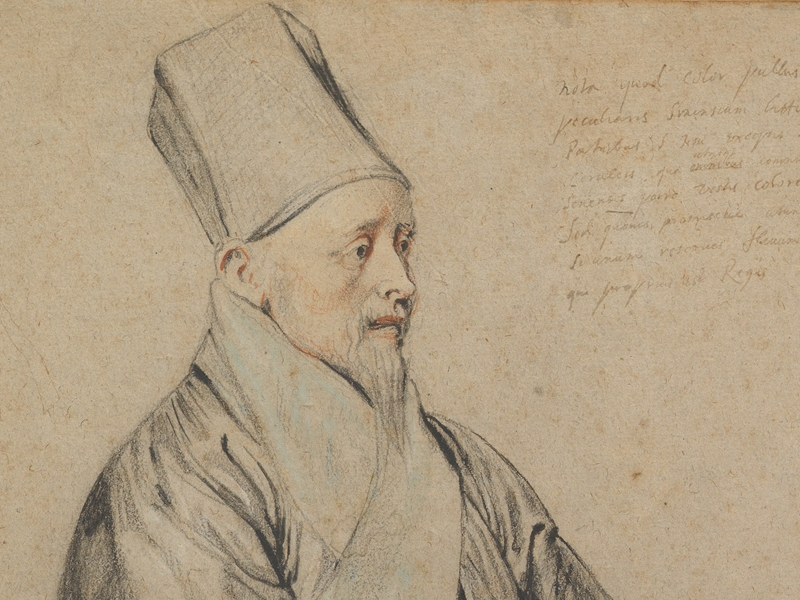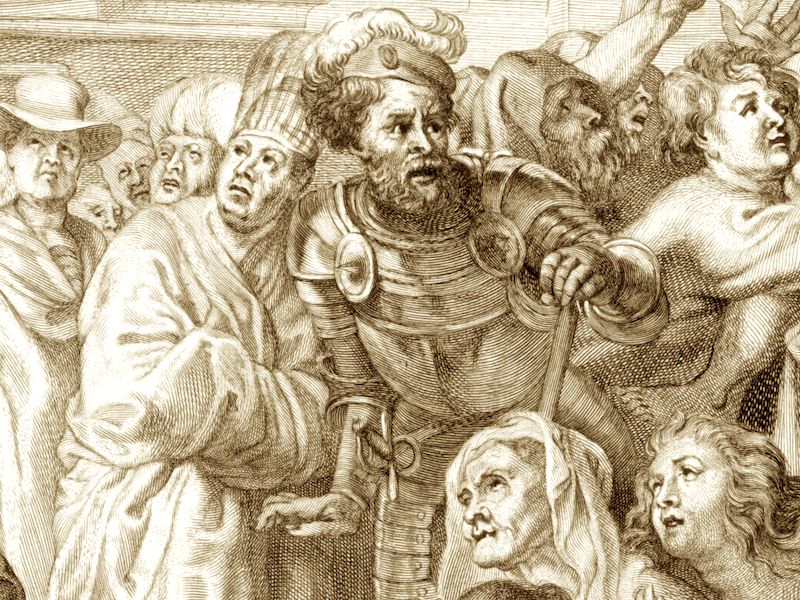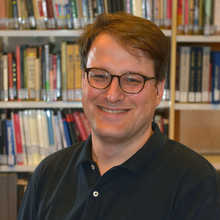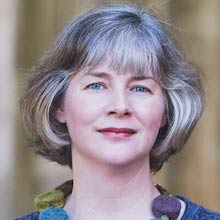EMOPractices
Emotions as Practice in the early modern Jesuit missions in the Asia-Pacific
Project
The project “Emotions as Practice in the early modern Jesuit missions in the Asia-Pacific” (EMOPractices) approaches the XVI-XVIII century Asian enterprises of the Society of Jesus through the lens of emotions, with the aim to analyse the role of Jesuit emotional practices and their impact on the Western creation of the image of peoples of the Asia-Pacific region. EMOPractices operates at the junction of history and anthropology; it is supervised by Prof. Giovanni Bulian of Ca’ Foscari University Venice and by Prof. Susan Broomhall of the Australian Catholic University, while Prof. Monique Scheer and Prof. Renate Dürr oversee the secondment at the University of Tübingen.
Research on emotions has been an effervescent, developing field for the past twenty years now, so that it is possible to speak of an “emotional turn” in the social sciences and humanities. The perceived ahistorical nature of emotions has long been refuted, and tracing through time the genealogy of the concept of “emotion” itself has allowed the critical analysis of the category. While the connections existing between religion and feelings have received discreet attention, Catholic missions and the roles of feelings in the processes of evangelization have yet to be thoroughly explored.
EMOPractices considers, as primary sources, missionary literature by the members of the Society of Jesus in Asia and in the Pacific, between the 16th and the 18th century. Jesuit missionaries were often found at the forefront of early modern intercultural contacts and created letters and reports where the visual elements of foreign cultures appeared described with a wealth of details, for the eager consumption of the European public. However, a close reading of these documents also reveals the centrality of emotions in the Jesuit evangelization practices.
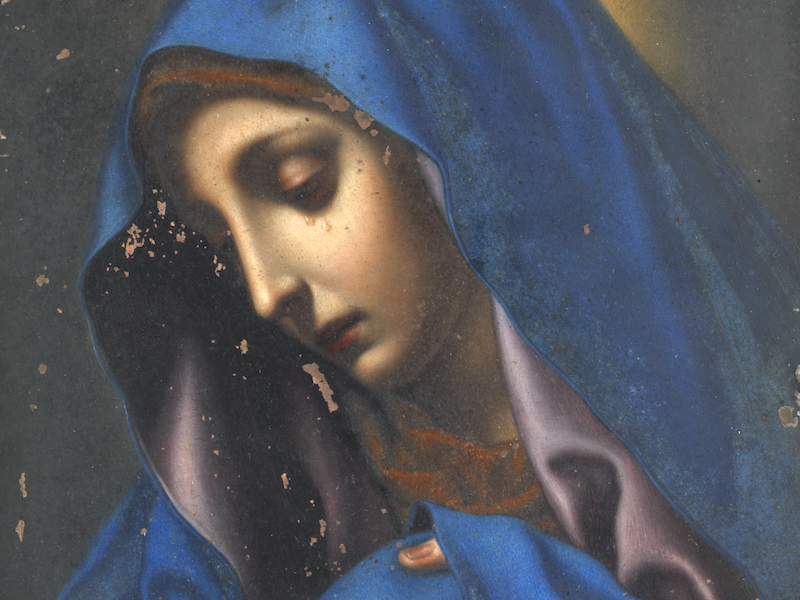
Feelings were a key component of the “motions of the soul” that Ignatius Loyola, founder of the Society of Jesus, identified as a central tool to discern spirits, and, therefore, to understand to live according to God’s will. Just as most Jesuits showed to find emotions important in their spiritual lives, they considered them a key aspect of any process of conversion too. Moreover, as emotions were considered universal, they appeared to enable a direct, non-verbal communication across humankind, that in turn could support the verbal transmission of the religious message, that is, the final aim of the Jesuit missionaries. Thus, although the Jesuits generally called attention to the purported higher rationality of the Christian message, the emotional dimensions of evangelization were not less essential and could sensibly impact missionary policies and the image of the Other produced by missionary literature.
EMOPractices analyses Jesuit writings by considering emotions as practices, following a Bourdieuian approach theorized by Monique Scheer (2012). It will therefore identify the emotional typologies used by the missionaries to classify different Asian people; the practices that characterized the new emotional communities, together with their hierarchies, rules and control systems; and the mechanisms of the discursive creation of the “emotional Other,” as part of the changes in the early modern European understanding of the world and humankind.
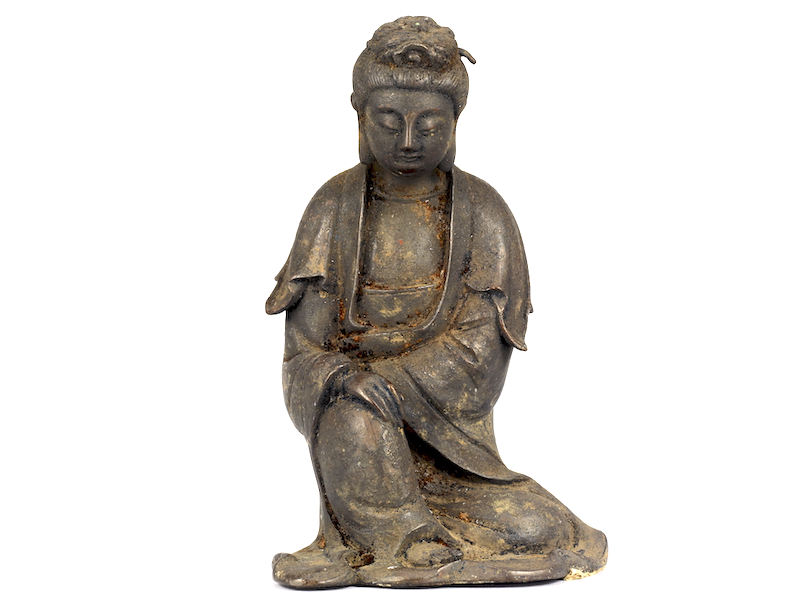
Data visualisations
Storymap: Christian Crosses in Japan (1549-1562)
Trends of three emotional terms in the Jesuit letters from Japan (1547-1562). Corpus: “Documentos de Japón”, edited by Juan Ruiz de Medina. Instituto Histórico de la Compañia de Jesús, 1990-1995, 2 vols.
The following trends graphs show how love and consolation (and derivate words), generally held to be positive emotions, appear in the Jesuit letters much more often than fear ("temor") and its derivate words. The first graph shows the change of relative frequencies of these terms from the first section of the sources (1547-1557) to the second (1558-1562); the second graph shows the changes in the period 1547-1557, and the third in the period 1558-1562. While fear in the Christian tradition was considered a positive emotion when embodied in relation to God, or the institution of the Church, as it could lead to redemption, this emotion in these letters does rarely appear in this context.
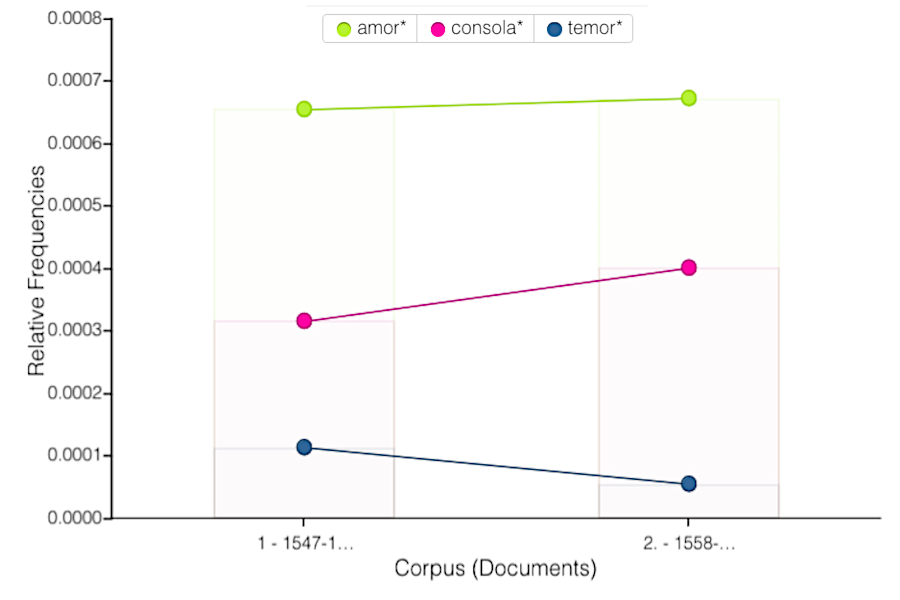
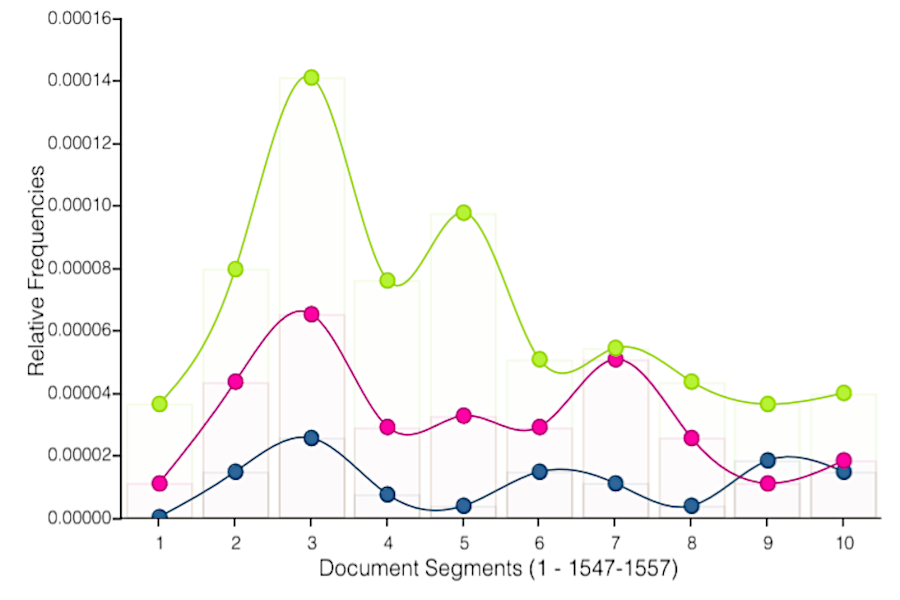

As the following links graph shows, indeed, fear could appear in relation to God ("deus"), but would be linked more often to losing one’s life ("vida", “vivo”) while doing missionary activity in a country ravaged by war.
Indeed, while dying a martyr for the propagation of the faith was a desirable end, the Jesuits did underscore their own fear to exalt God’s protection over the heroic deeds of the mission, depicting its growing amid adversities.

Workshops
10-11/09/2024 - hybrid international workshop “Emotions, Affects, Feelings: Asian and European Historical Encounters"
- Ca’ Foscari University of Venice. Convenor: Linda Zampol D’Ortia
10-11/09/2024 - Programme and book of abstracts on Zenodo
15-16/07/2024 - hybrid workshop “Intercultural Encounters between Masculinities in the Pre-modern World: Emotions and Religion”
|
|
Programme 15-16/07/2024
Gender and Women’s History Research Centre, Australian Catholic University, Melbourne and online. Convenors: Linda Zampol D’Ortia, Susan Broomhall |
337 KB |
7/02/2023 - hybrid international workshop “Gender and Emotion in Japanese Christianity (1549-1638)”
|
|
Call for papers - deadline 13/11/2022 | 697 KB |
|
|
Programme 7/02/2023
Gender and Women’s History Research Centre, Australian Catholic University, Melbourne and online. Convenors: Linda Zampol D’Ortia, Jessica O’Leary |
271 KB |
|
|
Leaflet for prof. Haruko Nawata Ward’s keynote speech | 192 KB |
Team
Dr. Linda Zampol D’Ortia
Marie Skłodowska Curie Global fellow
Department of Asian and North African Studies
Ca’ Foscari University of Venice
Prof. Giovanni Bulian
Department of Asian and North African Studies
Ca’ Foscari University of Venice
Prof. Susan Broomhall
Gender and Women’s History Research Centre
Institute for Humanities and Social Sciences
Australian Catholic University

